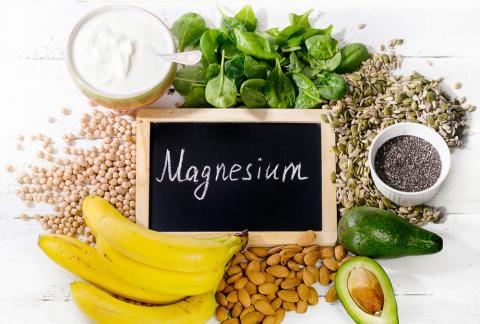
Most people don’t start taking supplements until after
they’ve been diagnosed with a deficiency, but there’s reason
to be proactive with your supplementation, too—especially as
you age. Cardiovascular disease remains the number one killer in
the United States and includes everything from coronary artery
disease, to high blood pressure, to congenital heart diseases and
arrhythmia. Most patients are prescribed pharmaceuticals and,
depending on your health, these can be absolutely vital. I am not
a doctor, nor do I claim to be one, but in my book, an ounce of
prevention goes a long way. Along with exercising, eating right,
and keeping your stress levels as low as you can, taking the
right kind of supplements can make a difference.
1. CoQ10
Last month, my husband had open heart surgery to repair his
ascending aorta, the result of a congenital heart issue caused by
a bicuspid valve. The first supplement recommended was Coenzyme
Q10, (or CoQ10). This fat-soluble vitamin primarily
functions to break food down into energy, but its antioxidant
properties are the main reason this supplement has gained
popularity. The antioxidants found in CoQ10 help to fight free
radicals that can otherwise be toxic to the body. Coq10 is found
in many foods, but as
Dr. Weil explains, the supplementation is generally lauded
for its role in oxygen utilization in heart muscle cells. A 2014
study found a decrease in major cardiovascular
events.
Most doctors recommend a modest dose of 90-120 mg of CoQ10
daily, which is acceptable for both people with a history of
heart disease and those who are simply looking for a
preventative. As a fat-soluble vitamin, ensure that you take it
with a meal for optimal absorption.
2. Fish Oil
Fish
oil has long been touted in the natural medicine world,
thanks to its high omega-3 content. In addition to treating mental
disorders, boosting brain health, managing weight, and reducing
inflammation, fish oil is particularly great for heart health.
Consuming fish oil by way of cold water fish like wild salmon,
cod, and mackerel 2-3 times a week, or taking a high quality
supplement, has been shown to reduce
blood pressure, increase HDL (traditionally thought of as
good cholesterol), minimize inflammation, and help to prevent
plaque from forming along arteries. Almost every grocery store
and pharmacy will carry fish oil, but it’s worth remembering
that when it comes to supplements, you get what you buy. That
means that purchasing a higher quality fish oil is necessary to
maximize your nutrition. Several factors should be looked at
when purchasing fish oil: purity, freshness, and sustainability
are vital, but for most people, potency tops the list. Rancid
oils can be incredibly carcinogenic, so brown bottles
typically mean a fresher supplement. Additionally, potency varies
depending on the type of fish oil used. While mackerel, sardine,
and krill are often used, I prefer fermented cod liver oil for a
few reasons. One, it’s a whole foods product that has
maintained its natural form without any processing, as
Chris Kesser explains. Two, it’s especially high in vitamin
D and K2, essential bone-building vitamins.
Most products come as a one-a-day, usually within the 700-1000
mg of EPA and 200-500 mg of DHAA that Dr.
Weil recommends.
3. Magnesium
Magnesium has gained popularity over the last several years.
For good reason: it’s
responsible for over 300 different processes in our body,
including blood pressure regulation. There are several ways to
increase your magnesium intake: epsom salt baths,
magnesium-infused lotions, and magnesium-rich foods like Swiss chard, pumpkin seeds, and kale all help, but my
favorite, and likely the easiest, way to boost your magnesium
content is with a powder supplement.
Bonus: it works as an anti-stress drink, too. Standard
recommendations are 350 mg per day for females and 450 mg per day
for males, including what is consumed via food. Look for
magnesium citrate, a bio-available form.
Your daily life ultimately has the biggest impact on your
heart health, so pay attention to how you’re sleeping, how
often you’re exercising, what you’re eating, and how much
you’re stressed. Add in these supplements as heart disease
preventatives and only after consulting with your personal health
practitioner.








